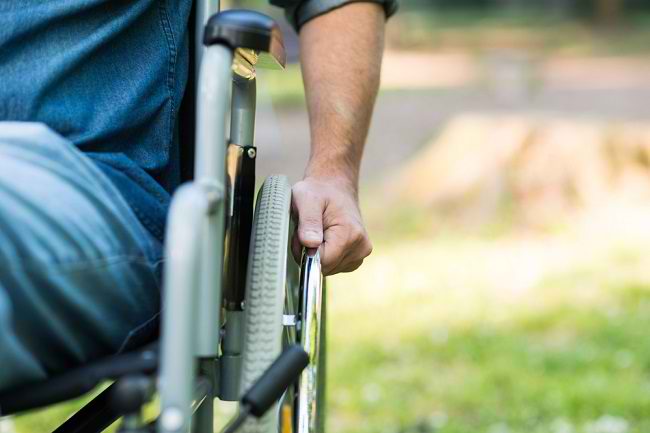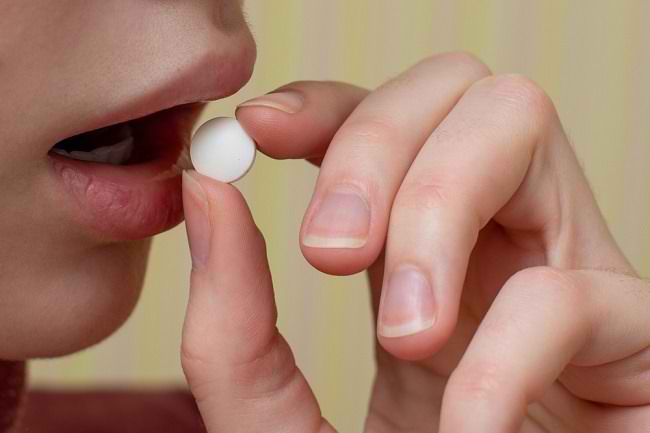Paliperidone is a drug used to treat the symptoms of schizophrenia. This drug can also be used to treat symptoms of schizoaffective disorder, which is a combination of schizophrenia and mental disorders mood, such as depression or bipolar disorder.
Paliperidone works by restoring the balance of natural chemicals in the brain. Thus, the symptoms of psychosis, such as hallucinations and agitation, experienced by people with schizophrenia or schizoaffective sufferers can be reduced.
The use of paliperidone will also help sufferers become calmer, can think more clearly, and improve mood, so they can carry out normal activities. Please note that this drug should not be used to treat psychosis associated with dementia in the elderly.
Paliperidone trademark: Invega, Invega Trinza, Invega Sustenna.

What is Paliperidone
| group | Prescription drugs |
| Category | Antipsychotic |
| Benefit | Relieves schizophrenia symptoms and schizoaffective symptoms |
| Used by | Adults and children 12 years old |
| Paliperidone for pregnant and lactating women | Category C: Animal studies have shown adverse effects on the fetus, but there are no controlled studies in pregnant women. Drugs should only be used if the expected benefit outweighs the risk to the fetus. Paliperidone can be absorbed into breast milk. If you are breastfeeding, do not use this medicine without consulting your doctor first. |
| Drug form | Tablets, injections |
Precautions Before Using Paliperidone
Paliperidone should only be used under a doctor's prescription. There are several things that must be considered before using this drug, including:
- Do not use paliperidone if you are allergic to this drug or to antipsychotic drugs, such as risperidone.
- Tell your doctor if you have or have had kidney disease, liver disease, Parkinson's disease, glaucoma, cataracts, diabetes, heart disease, heart rhythm disorders, electrolyte disturbances, peritonitis, cystic fibrosis, or seizures.
- This drug should not be used by people with psychosis associated with dementia. Tell your doctor if you have dementia.
- Tell your doctor if you have ever been on medication for a mental disorder or if you have had any serious side effects while taking this medication.
- Do not drink alcohol while you are taking paliperidone, as alcohol can make you more sleepy.
- Do not drive or do activities that require alertness while you are taking paliperidone, as this medicine can cause dizziness and drowsiness.
- Tell your doctor if you are taking certain medications, supplements, or herbal products.
- Tell your doctor if you are pregnant, breastfeeding, or planning a pregnancy.
- Do not stop using paliperidone suddenly without consulting your doctor first. Follow the control schedule given by your doctor during treatment with this drug.
- Paliperidone can reduce your ability to sweat, which can lead to heat stroke. Avoid or limit activities in hot weather or in direct sunlight.
- If you plan to have dental treatment or surgery, including eye surgery, tell your doctor that you are taking paliperidone.
- See your doctor right away if you have an allergic reaction, a more serious side effect, or an overdose after using paliperidone.
Dosage and Instructions for Use of Paliperidone
The following are general doses of paliperidone based on the patient's condition, form of drug, and age:
Paliperidone tablets
Condition: Schizophrenia
- Mature: Initial dose 6 mg, once daily, in the morning. The next dose will be adjusted according to the patient's condition. The maximum dose is no more than 12 mg per day.
- Children aged 12 years and weighing 51 kg: Initial dose 3 mg, once daily, in the morning. The dose can be increased according to the patient's condition. The maximum dose is 12 mg per day.
- Children aged 12 years and weighing 51 kg: Initial dose 3 mg, once daily, in the morning. The dose can be increased according to the patient's condition. The maximum dose is 6 mg per day.
Condition: Schizoaffective
- Mature: The initial dose of 3–6 mg is adjusted according to the patient's condition, 1 time a day, in the morning. The maximum dose is no more than 12 mg per day.
Paliperidone is also available in the form of an injection that will be given directly by a doctor or medical officer under the supervision of a doctor.
How to Use Paliperidone Correctly
Follow the doctor's recommendations and read the instructions for use listed on the packaging before using paliperidone. Paliperidone injection type should only be given by a doctor or medical personnel under the supervision of a doctor.
For paliperidone tablets, take them at the same time every day for maximum effect.
If you forget to take paliperidone, it is advisable to take it as soon as you remember if the break with the next schedule is not too close. If it is close, ignore it and do not double the dose.
Paliperidone tablets can be taken before or after meals. Swallow the tablet whole with a glass of water. Do not split or crush the tablet as this may increase the risk of side effects.
Store paliperidone at room temperature. Do not store it in a humid place or in direct sunlight. Keep this medicine out of reach of children.
Paliperidone Interactions with Other Drugs
The following are some of the effects of drug interactions that may occur when using paliperidone together with other drugs:
- Increased risk of QT prolongation if used with antiarrhythmic drugs, such as quinidine, disopyramide, or amiodarone
- Increased blood levels of paliperidone when used with valproate
- Decreased blood levels of paliperidone when used with carbamazepine
- Increased effect of paliperidone when used with other antipsychotic or antidepressant drugs
- Increased risk of developing central nervous system disorders that can cause breathing problems, coma, and even death if used with opioid drugs, such as codeine, fentanyl, or morphine
- Decreased effect of the drug levodopa
- Increased risk of developing tardive dyskinesia with metoclopramide
Side Effects and Dangers of Paliperidone
Some of the side effects that may appear after using paliperidone are:
- Drowsiness
- Nervous
- Headache
- Dizziness or difficulty maintaining balance
- dry mouth
- Stomach ache
- Constipation
- Excessive weakness and fatigue
Check with your doctor if the side effects above don't go away or get worse. See your doctor immediately if you have an allergic reaction to the drug or a more serious side effect, such as:
- Muscle stiffness or muscle pain
- High fever
- Heart palpitations or irregular heartbeat
- Body shaking, tremors, or slow, stiff body movements
- Excessive sweating
- Mood swings or mood
- Swollen and painful breasts
- Longer and painful erections









